 There is no government body responsible for ensuring “fair play” in the body corporate world, something that often comes as a shock to owners.
There is no government body responsible for ensuring “fair play” in the body corporate world, something that often comes as a shock to owners.
Instead there is a specialist body corporate court, administered by Office of the Commissioner Body Corporate.
Orders made by an Adjudicator become part of the legal interpretation of the body corporate law. All decisions since 2000 are available online for free.
This article is about how to search Adjudicators Orders and what to look for.
Why Search Adjudicators Orders?
Legislation needs to be fairly broad to cover as many potential situations as possible. Combine broad legislation with the multitudes of ways schemes can be built and registered and its anyone’s guess how that legislation may be applied to any given set of facts.
That’s the role of the court: interpreting the legislation in reference to a given set of facts.
I urge owners to question decisions made by their committees: remember these decisions are being made by lay-people, owners just like you. Decisions can and do breach legislation all the time. And unless you complain the decision will stand.
But one the first things you should consider before seeking Adjudication is “could I be wrong?”.
It’s worth doing a search of Adjudicators Orders to avoid wasting everyone’s time, energy and money if you’ve made an incorrect assumption that can be easily cleared up.
There are going to be situations where the answer is uncertain. The law might be clear but the application of that law to your specific set of circumstances could be argued either way. Or the other way around.
To demonstrate how to search I’ve made up the following question:
There is a retaining wall at the back of my property that sits on the boundary between the body corporate and the neighbours. It is made of wood and has a fence on top of it. The wall is rotting and falling away pulling the fence down with it. The body corporate says it is my responsibility to fix the wall so they can fix the fence. Is that right?
How to Search Adjudicators Orders
Access the Adjudicators Order database at http://www.austlii.edu.au/au/cases/qld/QBCCMCmr/ or use the handy button below.
Search Adjudicators Orders
When you click the link or access the page you arrive at a database screen that looks like this:
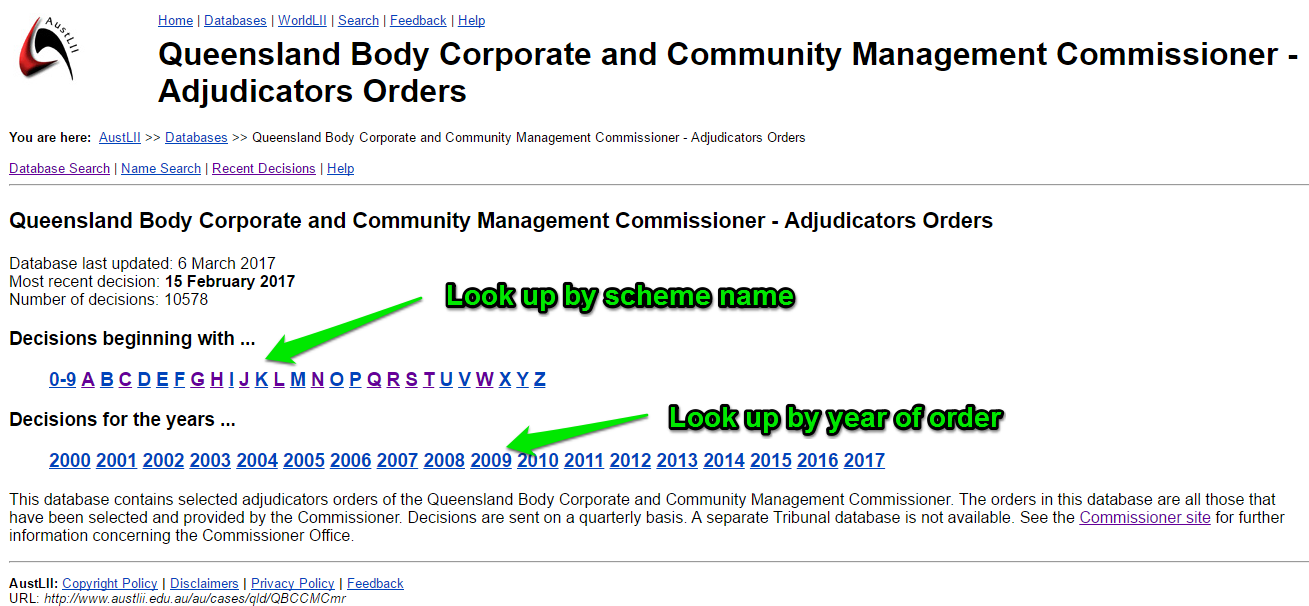
FIGURE 1: Adjudicators Orders search screen. Searches may be done by looking up a scheme name, browsing year of order or via an Advanced Search.
If you’re looking to see if a particular scheme has any orders you can look up the scheme name.
Please note that you need to check both the scheme name and the CTS number. There are multiple schemes with the same name but CTS numbers are unique.
You can also look up orders by years ordered.
To answer our question about retaining walls we need a more in depth search. From the same screen select Database Search.
This will launch a screen that looks like Figure 3.
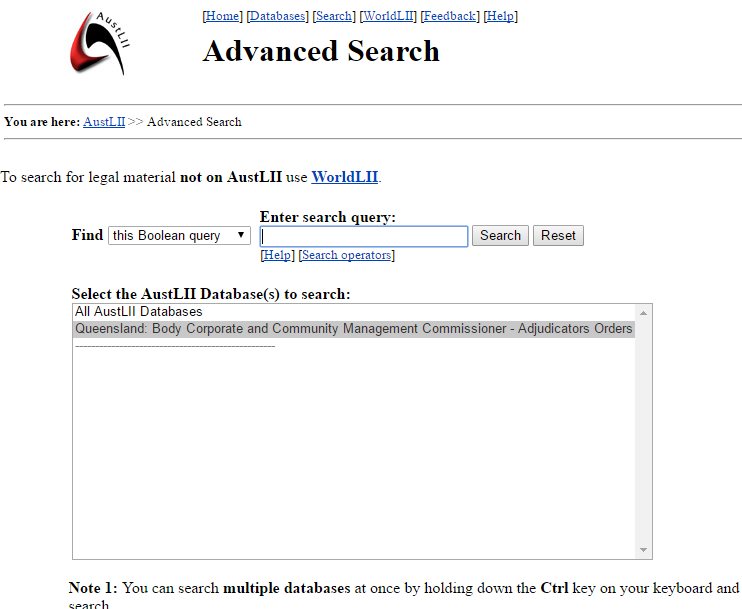
FIGURE 3: Advanced Search window. If you have one word or phrase you’re searching enter the search query and hit SEARCH
There are hundred’s of thousands of Adjudicators Orders on all sorts of subjects. Many of them have multiple subjects. We need to be as clear as we can with the term we search for best results.
A Boolean query will search for the term you enter exactly as you enter it.
I could enter the phrase “retaining walls” here and find information on my subject topic.
The search is going to return a list of orders, shown at Figure 4, which I’ll need to read through to find my answer.
Narrowing Your Adjudicators Order Search
I would prefer to narrow the search so I have a higher chance of getting what I want on the first search.
To do that I am going to search on more than one term. In this case “retaining wall” and “boundary”.
I cannot do a Boolean search however as the likelihood of the two terms being written together are slim.
Instead I will need to change the Find field from “this Boolean search” to “all of these words”. Click on the down arrow beside Boolean search and a number of options will appear as shown in figure 5. Select the “all of these words” setting.
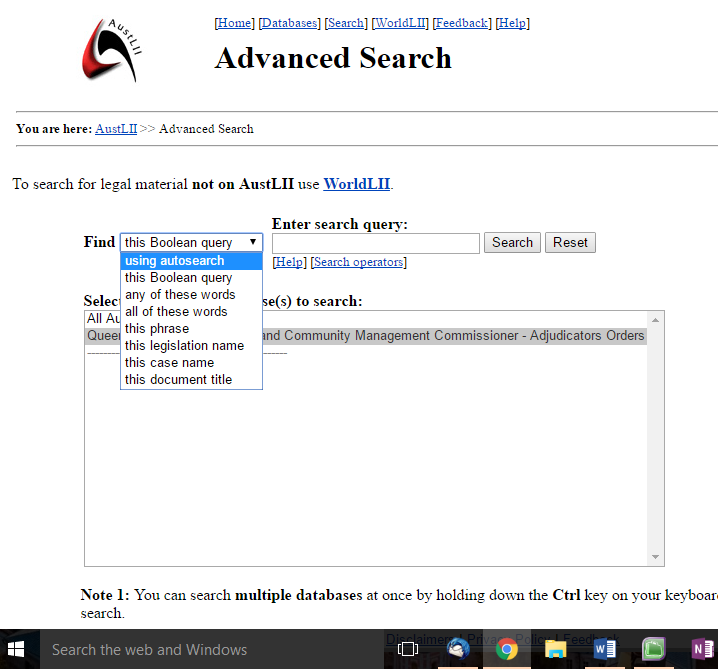
FIGURE 5: Change the Find setting from “this Boolean query” to “all of these words” to enter multiple search terms
Enter each term with a comma separating them. A phrase, such as retaining wall, is one term.
That would look like figure 6 below. Select search and return results as shown in figure 7 will be generated.
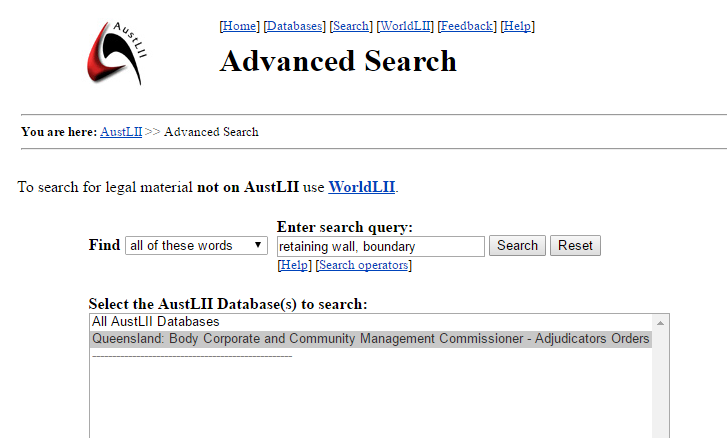
FIGURE 6: Advanced search using “any of these words” setting and two search phrases, separated by a comma,
Handily the results are shown with scores. In this case our best result is the top one with 100% rating.
Making Sense of Adjudicators Order’s
Now that we have a list of orders our next step is to get reading. For this example I am looking at the order Regents Landing No. 1 [2013] QBCCMCmr 123 (20 March 2013).
One of the first things to check is the date of the order. Legislation and its application evolve over time so newer orders are better.
Adjudicators Orders follow a specific pattern. At the top are specific “catchwords” that summarise the facts of the case. Underneath is the order made and then reasons for decisions.
Compare the Facts of the Case
The facts of the case are set out at the top of the reasons to give us a clear outline for the decisions. Skim through this part first to make sure it’s talking about the same issues that suit your case. If they do keep reading. If not, go check another order.
For my question the order returned does deal with similar facts about retaining walls on scheme boundaries.
A reading of the case shows that section 311 of the BCCM Act 1997 notes that boundary fences are the responsibility of the body corporate but then the Neighbourhood Disputes Resolution Act applies. A quick google search finds:
Retaining walls are not classed as fences under the Neighbourhood Disputes Resolution Act 2011 . Retaining walls are built to support built up or excavated earth. They are normally not a matter of joint responsibility for neighbours as they are usually benefit one neighbour more than the other. However, QCAT can make orders about fencing disputes that includes work on a retaining wall if the repair of the fence will also require work on the retaining wall.
Conclusion
The question was, the retaining wall on the boundary is failing and causing damage to the fence above it. Who is responsible?
The order above shows most likely the owner is responsible for the retaining wall.
It could be argued that the retaining wall is part of the overall boundary fencing structure of the scheme and as such should be body corporate responsibility.
The lot owner must decide what to do next.
It is clear the body corporate is not being unreasonable insisting the owner repair the wall. It’s also clear that there is a possibility the wall may be part of the fence structure. Is it worth pursuing?
Body corporate legislation and it’s application is huge. And often very confusing. Having endless questions is a given. Being able to search Adjudicators Orders will at least give you another tool for seeking answers.
Search Adjudicators Orders
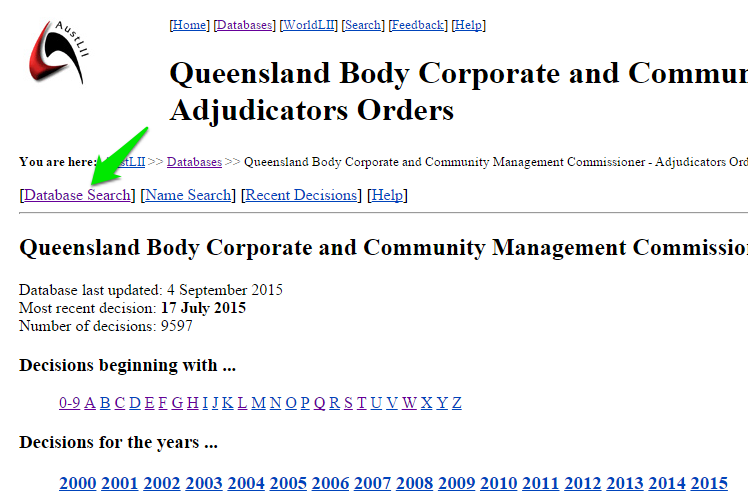
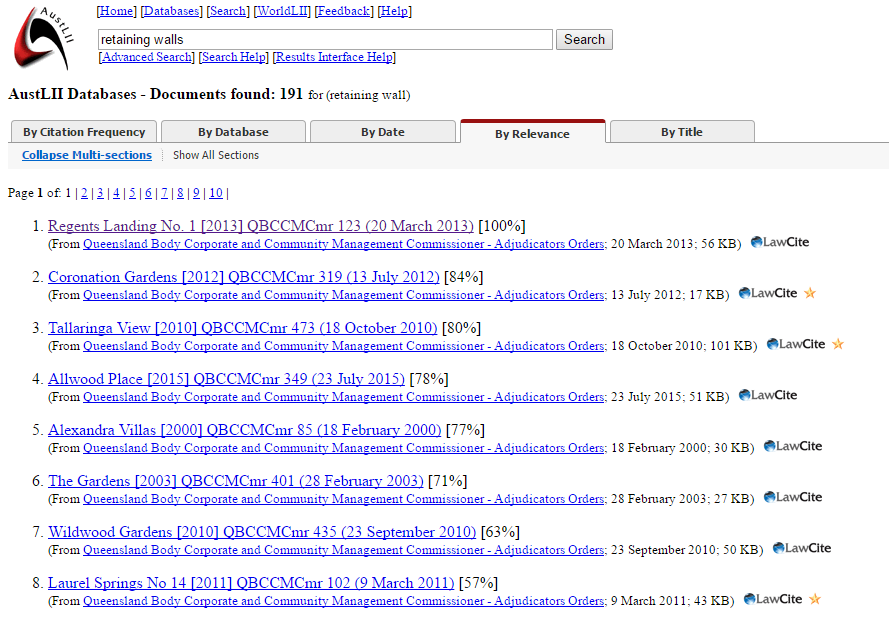
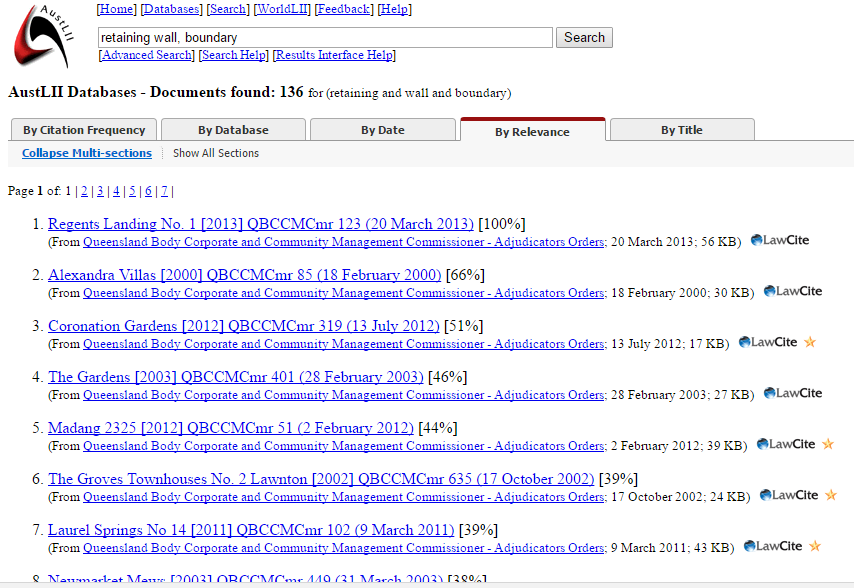
 Unless stated otherwise all the information on this website relates to Queensland legislation.
Unless stated otherwise all the information on this website relates to Queensland legislation.
Interesting that we have to rely on Adjudicators orders to resolve Body Corporate issues.
From our recent experience the process of going to conciliation, through to applying for Adjudicators orders to resolve an issue is a complete waste of time, and completely pointless.
We had Adjudicators orders in place to which the Body Corporate refused to comply with, the matter was taken to the Magistrates Court for enforcement of the Adjudicators order, only to have the Magistrate over ride the Adjudicators order and completely disregard what the Adjudicator had ordered.
The presiding Magistrate made comments that he is on a Body Corporate and you always get one person complaining and as no one else complained dismissed the claim. This is a Body Corporate that contains 143 lots yet at the AGM not one lot owner attended the AGM. The Adjudicator permitted submissions from all interested parties and made the ruling, the Magistrate did not allow us to respond to the Caretakers submission, which the Caretaker submitted the day before the hearing. The Caretaker submitted evidence totally irrelevant to the matter and avoided addressing the Adjudicators order yet the Magistrate ruled on the Caretakers submission.
The Body Corporate did not make a submission to the Magistrates Court but rather the submission came from the Caretaker.
From our experience, it is pointless going through BCCM as when the Conciliation Agreement was breached by the Committee after they agreed to the Conciliation Agreement, then you have an experienced Adjudicator make a ruling and a Magistrate disregards the Adjudicators deliberations.
Hi Tony
I’m gobsmacked. That is awful. I can’t believe that Magistrate. It leaves you with no other option but to appeal to the Supreme Court racking up a fortune in legal fees at the same time. How disheartening.
That’s the problem with legal action: it costs a fortune and can flip on a dime because of random issues. But what other options do owners have? If you don’t go the legal route there aren’t other avenues other than conciliation. Its a frustrating situation.
Hi Lisa,
We were gobsmacked also, think our Solicitors felt disappointed by the system, we did a google search of the presiding Magistrate and that answered our questions!!! Luck of the draw with the Magistrates Court.
The option to appeal is there but you realise there is not much point. We had two issues which the Adjudicator ruled in our favour, very basic issues like the Caretakers were renting out the visitor car parks to their hotel guests, and when you live in the City in a block of 143 apartments with only 5 visitor car spaces and the Caretaker were renting four of the five visitor car spaces to their hotel guests for 10 consecutive days I believe we had reason to seek Adjudication, the Adjudicator ruled that Mantra Hotels were breaching the by laws and this practice by Mantra has now ceased.
Other issue was garbage disposal, or lack thereof, the Magistrate deemed that one wheelie bin was suitable for rubbish that does not fit down the small garbage shute…for 143 apartments, luckily we are on a floor high enough not to experience too much of the bad smells from the back flow up the garbage shute, not too good for those on the lower floors.
Enjoy reading your info…thanks
The adjudicators orders are pointless. Our body corporate committee and their rouge manager regularly flout the body corporate laws and regulations and even though an adjudicator places an order it has NO EFFECT IN LAW. You have to go to a court and risk huge costs against you, at least $ 10k, if you try to enforce an adjudicators order to seek any type of justice or compensation payment.
The court operates in a random manner, prefers to deal with lawyers rather than ordinary people an will hardly expect you to speak more than a couple of sentences or basically ignore what you are saying.
An adjudicator is a waste of tax payers money and their consciences must be surely convicting them and I would not want to be in their position on judgement day. The courts are WORSE and support a load of leeches (lawyers etc) who are interested in their HUGE fees and pay little regard to seeking true justice, again on judgement day they will have their “reward”.